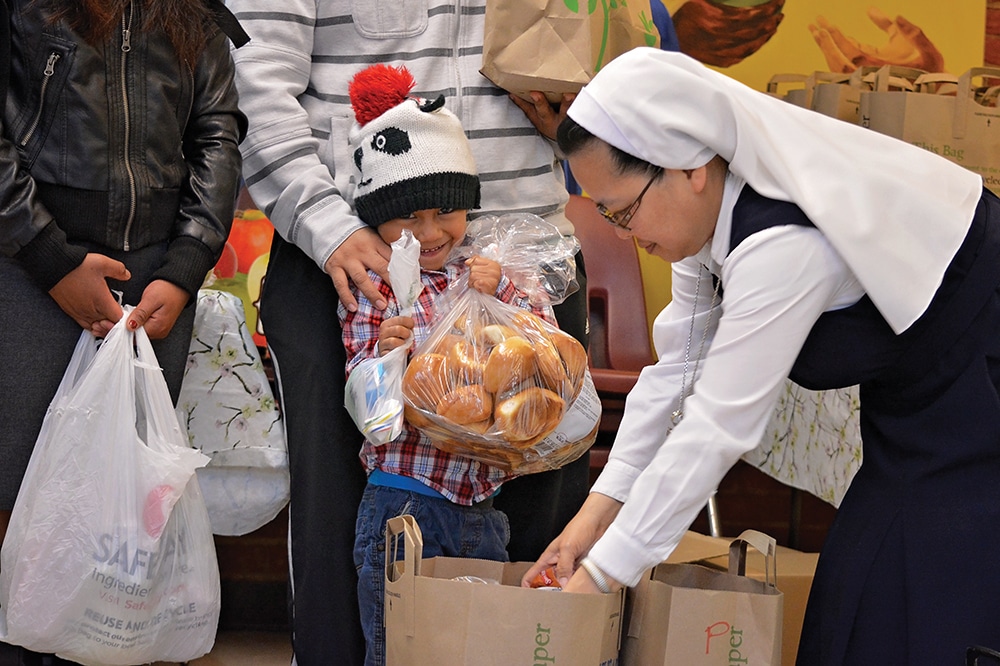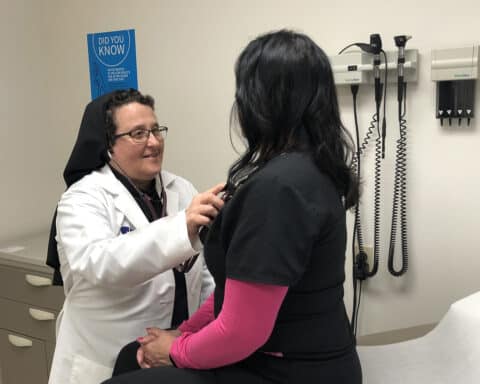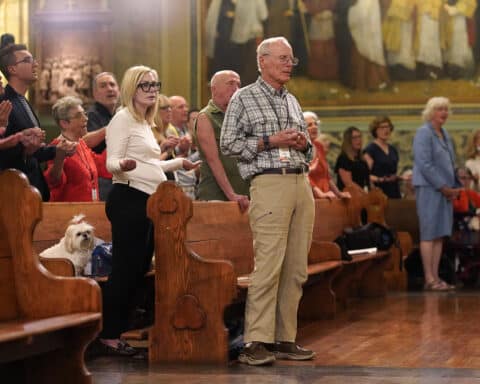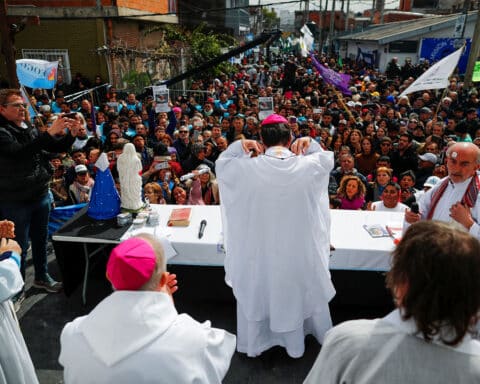The religious priests, brothers and sisters who live the evangelical counsel of poverty did not vow to be destitute, to live in squalor or dress in rags. They also never promised to forego the occasional glass of wine or fine meal.
In living out their vow of poverty, the religious have resolved to live simply and forego certain privileges — such as owning their own home and keeping their own salary — that many lay Catholics may take for granted.
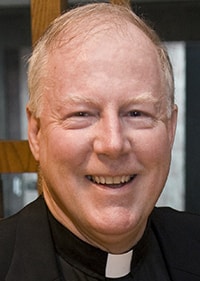
“I have a checking account with money the community gives me, but it’s rather limited,” said Jesuit Father James Bretzke, who teaches moral theology at John Carroll University in suburban Cleveland. His teaching salary goes to his Jesuit community, which gives him about $9,000 — for the whole year — for his own personal spending.
“If you had to live on $9,000, I think you’d be pretty careful,” Father Bretzke told Our Sunday Visitor. He said the evangelical counsel of poverty is intended to free religious priests like him for apostolic endeavors.
“Poverty is also meant to mortify us,” said Father Bretzke, who added that in Ignatian spirituality, that is understood as being free of attachments.
Practicing detachment
In that context, “poverty” translates to a spirit of detachment from material goods and creature comforts. For example, a Franciscan friar may need to drive a car or use a computer for his ministry, but knows that he can go without the latest iPhone — and he is OK with that.

“There has to be some level of prudence in how we use the different things that are at our disposal,” said Franciscan Father Emanuel Vasconcelos, the associate pastor at St. Anne Church in Columbus, Georgia.
Father Vasconcelos — “Father Manny” to his parishioners — told Our Sunday Visitor that the evangelical counsel of poverty will be lived differently in each religious community, depending on its charism, the ministry it is engaged in and the culture where the community is located.
“On a day-to-day basis, we have to rely on a number of things,” Father Vasconcelos said. “Some might look at the fact that we have computers, a nice living space, cars — those are things that may make people question, ‘Where is the poverty in that?’
“That’s why an understanding of detachment is so important,” Father Vasconcelos added. “We need to use certain things in order to minister effectively. If we were to take poverty fundamentally or literally, then it would be impossible for us to have any connection with people outside of our parish realm.”
In living out the vow of poverty, many religious communities in the modern world often deal with a tension in carrying out their ministry and simple living. Discernment is an essential feature of engaging that tension. Communities have to be honest with themselves in determining if something as basic as owning a television may weaken their resolve to be poor of spirit.
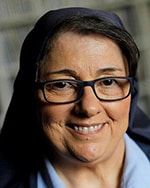
“It’s more than just not owning stuff. There is an inner relationship with the things of this world that we’re always struggling with,” said Pauline Sister Rose Pacatte, the founding director of the Pauline Center for Media Studies in Los Angeles.
Sister Rose’s ministry involves millions of dollars worth of expensive media equipment, which is obviously very different from how a cloistered religious community in a rural monastery would live out its vow of poverty.
“In order to carry out our apostolate, we have to use the means necessary,” said Sister Rose, who also told Our Sunday Visitor that she sees personal, communitarian, spiritual and ecclesial dimensions to the vow of poverty.
“With the vow of poverty, we’re following closely in the footsteps of Jesus’ example,” Sister Rose said. “He lived a poor, simple life, and that’s what we aim for as well. By poor, spiritually, it’s that lack of attachment to goods.
“We don’t have to live a middle-class (lifestyle),” Sister Rose added. “We just have to live with what’s enough.”
Living in community
While they vary by charism and mission, there are some common features of how the different religious communities live out their vow of poverty. In living together, they share almost everything in common. The communities cover their living expenses and the tools and supplies for their ministries. Whatever salaries or stipends the religious earn from their ministries or teaching jobs is pooled into the community.
Some religious have their own bank accounts — even credit cards — but they are completely dependent on their communities for whatever personal discretionary funds or “pocket money” they may receive. Any money they spend for official business has to be strictly accounted for.
“I have to bring the receipts and explain,” Father Vasconcelos said. “It’s a way of keeping ourselves accountable. And being aware that our use of money is a great spiritual practice. When I review where I’m spending money, I see what I’m valuing.”

Meanwhile, in Kent, located in southeast England, Benedictine Sister Mary Walburga Paget lives in Minster Abbey, where she and the other nuns hold all goods in common.
“That means that I don’t own anything. We share everything,” said Sister Mary, 39, who added that there are some things for her own exclusive personal use, such as her habit and toothbrush.
Ten years after she entered the monastery, Sister Mary admitted that she still finds the vow of poverty difficult in some ways.
“I still find it hard to have no ‘buying power’ of my own, to have to ask for what I need. It is a radical dependence on the religious superior that helps us to understand, to feel our dependence on God. But that isn’t easy. Easy to say, not so much to live,” Sister Mary said.
“People come to the monastery from all kinds of backgrounds,” Sister Mary added. “Sometimes it is a poverty in itself to accept the communal way of living poverty and not have to impose my own agenda.”
Caring for creation
Another modern feature of how religious communities are living their vow of poverty today involves an ecological dimension, which the Church in general has become more aware of since Laudato Si’, Pope Francis’ 2015 encyclical on integral ecology.
The communities are quite mindful of sustainable living, reusing what can be recycled — such as mending their own habits — and eliminating waste, which they see as compatible with living simply and against the grain of the materialistic and consumerist culture.
“Part of our simple lifestyle is to be aware of creation and to use the things that God has given us well,” said Sister Mary, who noted that St. Benedict wrote that the cellarer, the person in a monastery who is responsible for the provisioning of food and drink, should “regard all utensils and goods of the monastery as sacred vessels of the altar.”
“We clean tools after we have used them, store them away, use things gently so as to prolong their life,” Sister Mary said. “We try to eat food that is in season and try not to waste food. We try to limit the harmful chemicals we use and choose ecological alternatives whenever possible.”
Brian Fraga is a contributing editor for Our Sunday Visitor.

